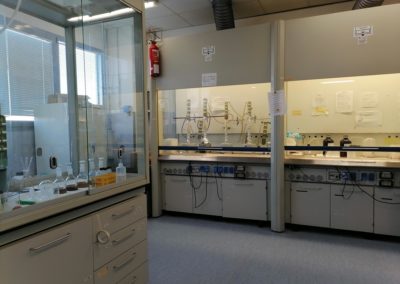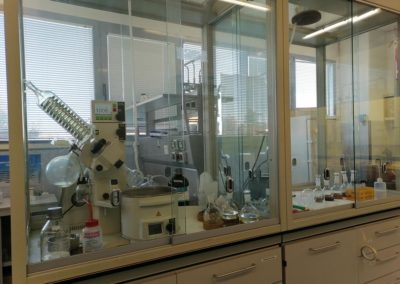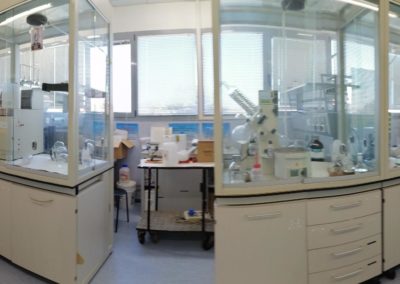The laboratory carries out routine analyzes on recognized pollutants using standardized methods or develops analytical methods in order to improve performance and / or simplify existing standardized methods. The need to expand new analytical methods is dictated in the case of new analytical targets or samples with peculiarities.
The laboratory carries out analyzes in different environmental matrices with the prevalence of matrices coming from industrial emissions (Samples from sampling trains: Dust, Condensate, analytes on adsorbents. Fly Ash, Bottom Ash, waste water, intermediate and feeding matrices of industrial plants etc.).
The activities carried out can be summarized in:
- Preparation of systems for sampling (Absorbent solutions, adsorbents, Marking with STD al 13C o perduterati
- Extractions of analytes from matrices: particulates, condensates, adsorbents, water, sediments, soils, waste
- Purification, separation and enrichment of the analytes of interest.
- Concentrations and marking in the different processing phases of the samples
Specifically, the laboratory has thirty years of experience in sample preparation activities both with standardized methods and with methods developed ad hoc on different classes of organic micropollutants.
The laboratory also collaborates with national and international companies in order to improve the preparative methods in order to simplify and / or automate the analytical procedures.
All the phases involve particular techniques and instruments and are followed by highly specialized personnel.
Given the chemical-physical characteristics of the compounds of interest, the main instrumental technique adopted is gas chromatography coupled to mass spectrometry (GC-MS). The instruments are equipped with different types of detectors (single quadrupole, triple quadrupole, high resolution) and injectors (SSL, PTV and on column) in order to cover every need regarding the concentration levels and chemical properties of the investigated compounds. The TSQ Quantum analyzer and the TSQ 8000 Evo model (Thermo Scientific) are systems that have been customized in our laboratories for the trace analysis of Halogenated Organic Micropollutants such as Dioxins, PCBs, PBDEs and pesticides by developing fast chromatography with the use of hydrogen as a gas carrier. The methods developed were designed to facilitate the implementation and management of multi-residue methodologies for POPs.



